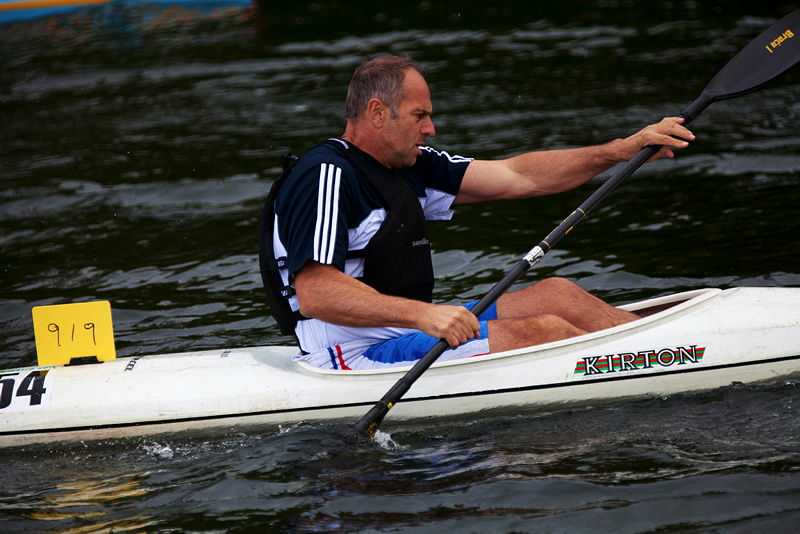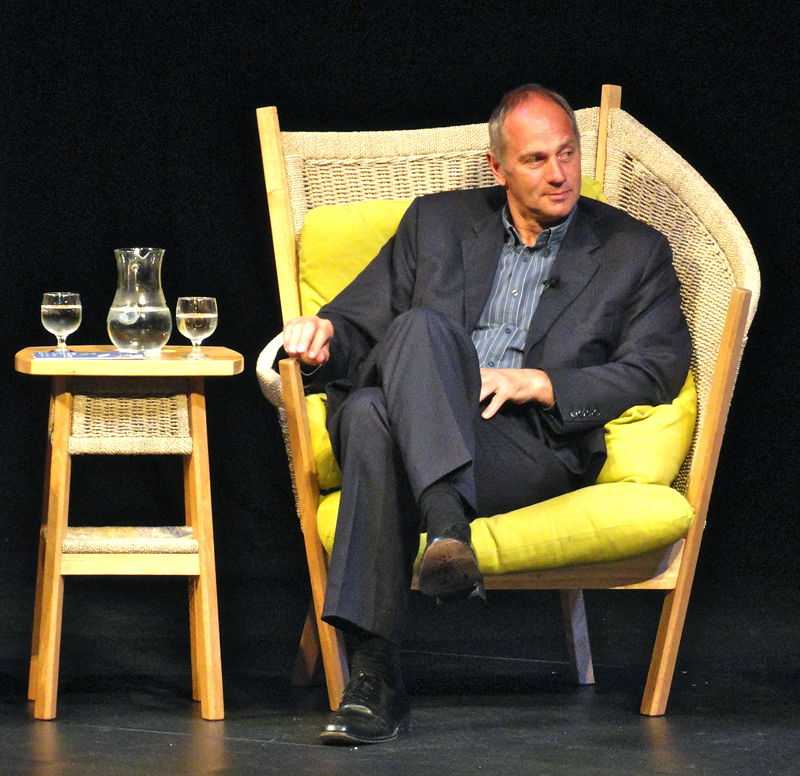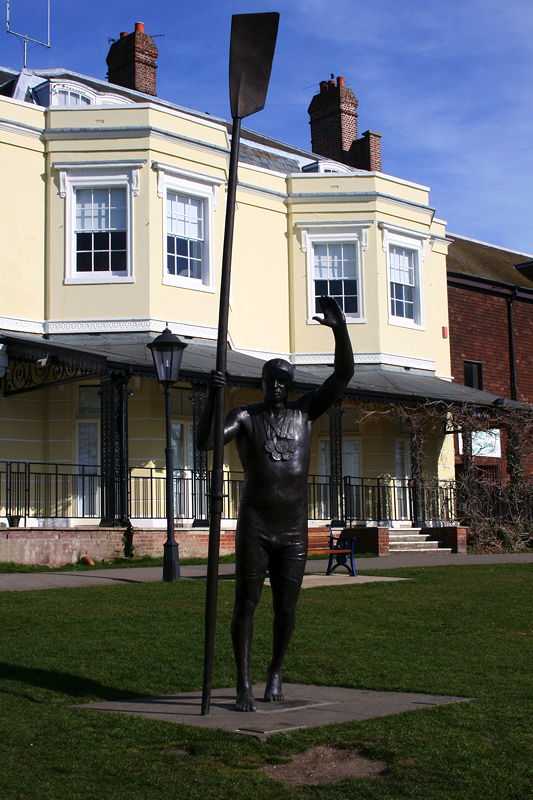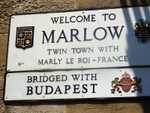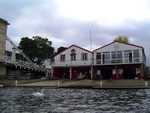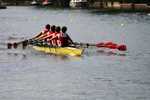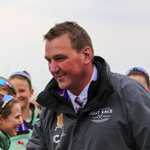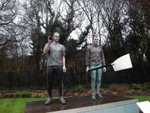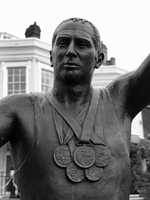1. Early life & career
Steven Geoffrey Redgrave was born 23rd March 1962 in Marlow, a son to Geoffrey and Sheila Redgrave.
Early life
Redgrave attended St Peter’s Street School which he did not enjoy, struggling with dyslexia until he moved to the newly built Burford School where it was recognised by the headmistress. After the 11-plus Redgrave attended Great Marlow Secondary Modern where again he was not terribly happy to begin with. Because of his dyslexia he was having to take extra English lessons instead of learning French.
Yet in one of those moments which can set you on your future path, head of English and also Redgrave’s form teacher for a year was Francis Smith, who was also captain of Marlow Rowing Club.
Smith asked some of his students if they wanted to try and be in the school rowing team, with Redgrave one of those invited due to the size of his hands and feet which pointed to him becoming a big man in the future and ideal for the sport. The selection process seemed to have its merits though, as 3 of the 12 in the school team went to the 1988 Olympics.
Early career
Leaving school Steve Redgrave received an unexpected boost to his self-belief when awarded the Best Potential Citizen award from his school. He was also being told he could go on and become a world champion rower and he opted out of further education.
It was not long before the forecasts were proved correct as Redgrave made his international debut in 1979 in the single sculls at the World Junior Championships. At the same championships one year on Redgrave landed his first medal when taking silver in the double skulls.
In 1981 Redgrave was to make his senior international debut for Britain in the quadruple scull placing 8th, which was improved upon the following year when finishing 6th. Sculling involves each rower having two oars, one for each hand, but Redgrave decided to switch away from sculling for now. He was to focus on single oar rowing and would soon start his run of consecutive Olympic golds which has made him such a household name in Britain.
2. Olympic Glory
Los Angeles hosted the summer Olympics in 1984 where a 22 year old Steve Redgrave was to win the first of his five gold medals as part of the coxed fours.
He returned to the single sculls at the World Championships the following year, but finished 12th. He would now focus on rowing again, this time in the pairs, teaming up with Andy Holmes who had also been in the winning boat with Redgrave in Los Angeles.
In the lead up to the 1988 Olympics Redgrave won his first World Championship gold medal in 1986, backing it up with another one the following year. He also collected three golds at the 1986 Commonwealth Games in Edinburgh in the single scull, coxless pair and coxed four.
At the 1988 Seoul Olympics Redgrave and Holmes won gold in the coxless pair, before picking up a bronze in the coxed pair for good measure. Andy Holmes called time on his rowing career after Seoul at which point Redgrave teamed up with Simon Berrisford to win the silver medal at the 1989 World Championships. However Berrisford was to suffer with a serious back issue at which point Redgrave teamed up with a young Matthew Pinsent.
They became the sport’s dominant pair, remaining unbeaten for five years, a run which included 4 World Championship titles and Redgrave’s 3rd Olympic gold at Barcelona in 1992. At Lucerne in 1994 the pair became the world record holders for the coxless pairs with a time which stood until 2002 when Pinsent surpassed it again, this time with partner James Cracknell.
Redgrave added Olympic gold number 4 in Atlanta in 1996 alongside Pinsent once more in the coxless pairs. At this point retirement became a serious consideration, confirmed by his famous quote
“Anyone who sees me near a boat again can shoot me.”
Yet Redgrave went back in a boat to take his place with Pinsent in the coxless four, winning the 1997 World Championship title. This was the same year Redgrave received his diabetes diagnosis, but he still carried on to win more World Championship titles in 1998 and 1989, plus two more World Cup titles.
At the Sydney Olympics in 2000 Redgrave claimed his historic 5th gold in what was probably one of the most anticipated rowing events ever watched in Britain. Along with Pinsent, James Cracknell and Tim Foster their hard training, involving 370km a week of rowing plus extensive gym work, paid off to huge acclaim back home. In recognition of his achievement Redgrave was also given a gold Olympic pin by the IOC at the medal ceremony.
3. Post Rowing and Legacy
Steve Redgrave retired in October 2000 and thousands turned out in Marlow to greet his return.
His sporting legacy was clear, but for all those with diabetes, seeing him win the 5th gold medal in Sydney was inspirational, proving you can do anything you wish while living with the condition. It was not the only obstacle he encountered in his career having previously been diagnosed with ulcerative colitis in 1992, requiring the right medical treatment and advice to be able to continue with his rowing career.
In 1988 he married Ann Calloway who represented Britain in rowing at the Los Angeles games and is now the chief medical officer to the GB team. They have three children, one of whom, Natalie, won the women’s boat race with Oxford in 2011 at Henley. Of course Henley has always played a significant role in Steve Redgrave’s life, where apart from winning multiple cups at its regattas he was elected Chairman in 2015.
There was a brief period where rowing was not his full sporting focus. Steve Redgrave has always enjoyed winter sports and during the 1989/90 season he was a member of the British bobsleigh team, after just missing qualification for the Winter Olympics in 1988.
Undeterred he won the one gold most people do not know about the next year as part of a 4 man bob team at the British Championships. After a few World Cup races he decided to head back to the calmer settings of the rowing lake.
As befits such a career the honours have been plentiful. In 2001 after the Sydney games Redgrave was knighted, having previously been awarded an MBE in 1987 and a CBE in 1997. The same year he was made Sir Steve Redgrave the sporting world honoured him with the Laureus lifetime achievement award.
He also became a member of the Laureus World Sports Academy in 2011. With Laureus he works with the charity Sport for Good, promoting how sport can help bring positive changes to disadvantaged parts of the world.
The British sporting public were not to be outdone, voting him BBC Sports Personality of the Year in 2000, with Redgrave later awarded the Lifetime Achievement award in 2011. He twice had the honour in his career of carrying the British flag at the Olympic opening ceremony.
In 2006 the Redgrave Pinsent rowing Lake was opened at Caversham near Reading which is home and the training base to British rowing and the national rowing squads. Inspiring the next generation of rowers and sporting stars is the legacy of a five Olympic gold medal winner. From 2006 to 2016 he helped the British women’s team which their mental preparation ahead of the Olympics and has also helped mentor some of Britain’s top athletes from other sporting arenas.
He also played a major role in the London 2012 Olympic bid and became its Sports Legacy Champion in an effort to get more people involved playing sports across the country. More recently he has accepted the challenge of high performance director for the Chinese national rowing team.
Steve Redgrave also commentates and offers his expert analysis on television at major rowing championship events. He is a keynote speaker, helping to inspire others by telling about his own personal battles to overcome illness and adversity in order to achieve success at the highest possible level of your chosen field. His is a remarkable career and one well worth telling.
